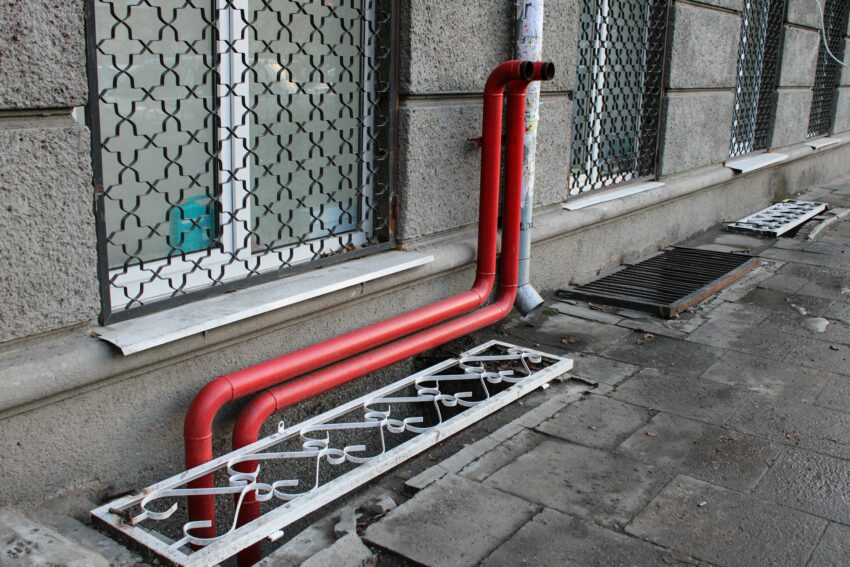Are you responsible for a large building project? If so, you likely have many different factors to manage, including commercial plumbing. Whether your background is in architecture, contracting, or engineering, you might not be very familiar with the intricacies of a large-scale commercial plumbing project. Hiring the right commercial plumber is a crucial first step, but it helps to have some background knowledge of commercial plumbing to ensure your project is a success.
Comprehensive Pre-Project Planning
Every project management process should start with comprehensive pre-project planning. Gather essential information and make crucial decisions as early as possible. Thorough planning will positively impact a project’s outcome and help prevent costly spending and delays. Begin by defining the project’s scope. Assemble your team based on the necessary skills required and set a timeline and budget. Then, you’re ready to get started.
Regulatory and Compliance Considerations
Commercial-scale plumbing projects are subject to regulatory compliance. Laws and regulations can vary drastically from state to state, and you must comply with building codes at the municipal level in many jurisdictions, too. Failing to maintain regulatory compliance can result in fines, permits being withheld, and costly delays. It’s necessary to document and report your project’s status, as well as monitor local laws and ensure you’re in compliance.
Keep Your Client Informed
A large-scale plumbing project will require communication between multiple groups. You’ll need a comprehensive communication plan that outlines how messages and information will flow back and forth between leadership, specialists, laborers, and other stakeholders. You don’t want to overwhelm building owners with too much information. However, you must still ensure they’re in the loop on the progress you’re making, how well you’re staying on schedule, what setbacks you’re facing, and how you’re dealing with those obstacles.
Detailed Design and Engineering
Once you’ve established open communication between all parties, you can get to work on the remaining details. It’s essential that you have everything mapped out before construction or renovations take place, such as technical calculations and specific requirements. Your project’s architects and engineers will need to create the drawings that outline the details, methods, and materials necessary for the entire project.
Efficient Procurement and Supply Chain Management
Procurement involves acquiring all the necessary goods and services for your project, and supply chain management is when you turn those goods and services into deliverables. Supply chain management deals with specific logistics, including warehouse management, shipping, transportation, and distribution of supplies to your teams as needed, according to where you are in the building process. Start by strategically selecting the best sellers for your needs based on their reliability, cost, and quality of product. The contracts with your chosen suppliers should outline your terms and conditions regarding pricing and performance and anticipate your future needs.
Strategic Project Execution
Your strategic project execution plan outlines how things will be managed and carried out from beginning to end. This is where you might dive into the details of delegating specific tasks for some project items while encouraging team collaboration on others. Identifying task dependencies helps order the sequence of progress, which you’ll need to monitor regularly. Your leadership team must create a risk-management plan, oversee effective communications and progress check-ins, and track deliverables and changes.
Maintaining Communication Channels
Hopefully, your large-scale plumbing project will follow the initial communication plan as closely as possible. You’ll be juggling multiple communication channels, and teams need to be able to contact each other and project leadership when issues or questions arise. Any delay in information or answers can slow down the whole operation or even bring it to a stop. Morning or weekly meetings with key stakeholders can iron out many issues in advance and keep things moving.
Comprehensive Testing and Inspection
The testing and inspection of a large-scale plumbing project inevitably involves multiple steps. Fittings, pipes, and fixtures will require regular inspections to watch out for signs of leaks and improper fit. Camera inspections let plumbers look inside the pipes of your larger system to identify potential issues. Outdoor plumbing fixtures, if present, need to be checked for freeze protection and proper operation. Your project should ensure everything is in working order before any government inspections are scheduled.
Effective Project Closeout and Maintenance
Most potential delays in your large-scale plumbing project will happen toward the end when you’re dealing with paperwork, contractors, customers, and regulatory codes. Identify specific maintenance and upkeep requirements and pass that information to whatever parties are responsible.
Learn Everything You Can
If you’re a project manager responsible for a large-scale project, you don’t have to be a plumber yourself. But you should learn all you can about the commercial plumbing industry. Anytime you need to schedule a plumber online for services, ensure the plumbers are adept at commercial-level work and not just residential services. Even the best-planned project will run into issues, but the industry experts you hire and consult have the experience and knowledge to keep things running smoothly.
Don’t let plumbing issues disrupt your business! Schedule an appointment with a professional plumber online now to ensure your commercial property runs smoothly.
Linda Barbara has worked in various capacities including as an interior designer, a teacher and the proud owner of a home décor blog, upgradehometutors.com.

